J-1 exchange visitors subject to the two-year foreign residence requirement of the Immigration and Nationality Act, Section 212(e), also referred to as INA § 212(e), are subject to several legal disabilities until they obtain a waiver or fulfill the requirement. These legal disabilities prevent exchange visitors from applying for H or L visa stamps, permanent resident status, an immigrant visa, and change of status (except A or G for non-physicians, see INA § 248(a)), significantly impacting them and their families.
The I-612 exceptional hardship waiver is one of four bases for overcoming these legal disabilities. It is different than the Interested Government Agency (IGA) and No Objection (NO) waivers, but it is also different than an I-612 persecution waiver based on race, religion, or political opinion in the home country. In this blog post, we will delve into the intricacies of the J-1 hardship waiver, including eligibility criteria, the application process, and the benefits of seeking legal assistance.
Short Summary
- The I-612 exceptional hardship waiver offers foreign nationals subject to the J-1 foreign residence requirement an exemption from this requirement due to exceptional hardships their return to or the family’s relocation to the home country would cause their U.S. qualifying relatives, if they can demonstrate exceptional hardship to their U.S. qualifying relatives in all viable travel alternatives available to the applicant and their family.
- The hardship waiver application process requires filing Form I–612 and supporting documentation with U.S. Citizenship and Immigration Services (USCIS) and Form DS–3035 with the U.S. Department of State Waiver Review Division (DOS-WRD).
- Legal assistance from an experienced immigration attorney can be invaluable in helping you successfully navigate the complexities of the J-1 exceptional hardship waiver application process.

Exceptional Hardship Waiver Eligibility Criteria
Under INA § 212(e), an applicant must demonstrate that his/her U.S. qualifying relative(s) would face exceptional hardship in every possible travel alternative. A qualifying relative is a U.S. citizen or lawful permanent resident spouse and/or a U.S. citizen or lawful permanent resident child or children.
The exceptional hardship must be serious and unusual with a significant probability of occurrence and a significant risk of harm in all possible travel alternatives. Ignorance of this rule is the main reason why applicants lose.
Hardship to the exchange visitor and non-qualifying relatives, such as parents, grandparents, in-laws, and siblings, doesn’t directly count, but it can if described in terms of how it would negatively impact the applicant’s U.S. qualifying relative(s).

Proving Exceptional Hardship
A successful I-612 exceptional hardship waiver is based on the following categories of hardship to the qualifying relative(s): (1) medical hardship(s); (2) psychological hardship(s); (3) career and/or educational disruption; (4) sociocultural hardships; (5) risk of physical harm in a dangerous country; (6) financial hardship; and (7) hardship to the U.S. public interest.
Hardships to non-qualifying relatives, such as siblings, parents, grandparents, and in-laws, may also be considered in certain circumstances. Hardship to the exchange visitor doesn’t directly count, but it can if described in terms of how it would negatively impact his/her U.S. qualifying or non-qualifying relatives.
Hardships should be presented in the order of gravity in this type of waiver application, and they are to be assessed in the totality of the circumstances. Consideration in isolation of each factor qualifying as exceptional hardship constitutes an abuse of discretion by the U.S. Government.
Medical and psychological hardships usually comprise the central hardship in a hardship waiver application, and damage to career or education is the most heavily decided aspect in administrative decision law. The more qualifying relative children in the case, the better.
Medical Hardship
Medical hardship refers to situations where U.S. qualifying relatives suffer from life-threatening illnesses or conditions that require regular care and/or medications not readily available in the applicant’s home country. Evidence, such as medical records and reports, must be provided to demonstrate the severity of the medical condition and the lack of adequate treatment in the home country.
Letters from physicians and medical records and reports play a crucial role in proving exceptional medical hardship. These documents need to provide information on the diagnosis, treatment, and prognosis of the medical condition affecting the U.S. qualifying relative.
Additionally, evidence demonstrating the lack of available or adequate medical facilities and care in the home country and the potential consequences to the health of the U.S. qualifying relative(s) must also be included in a successful application.
Psychological Hardship
Psychological hardship encompasses the potential mental health challenges the exchange visitor’s U.S. qualifying relative(s) would face if their spouse/parent was compelled to leave the United States for two years and the lack of comparable mental health services in the home country.
As with medical hardships, psychological hardships must be proved and supported with adequate evidence, typically in the form of letters from treatment providers and corroborating medical records. Applicants are often encouraged to also provide a third-party psychological evaluation.
Career and/or Educational Disruption
Career and/or educational disruption encompasses the negative impacts the exchange visitor’s departure to the home would have on a spouse’s demanding career and career trajectory or a child’s or children’s growth and development. The family upheaval would prove enough of a distraction that the exchange visitor’s absence could negatively affect a spouse’s career or a child’s education and development that could result in devastating consequences.
Sociocultural Hardship
Sociocultural hardship encompasses the challenges an exchange visitor’s U.S. qualifying child or children would face if he/she/they relocated to the home country. These hardships often revolve around language and cultural barriers in the home country that would make it difficult to successfully adjust to a new country, culture, and institutions.
Risk of Physical Harm
Exceptional risk of physical harm to an applicant’s U.S. citizen child or children is a viable exceptional hardship in I-612 hardship waivers with compelling and proper evidence. In various countries, U.S. qualifying relatives would be at an increased risk of violence, kidnapping, and terrorism or cultural and environmental hazards.
Financial Hardship
Financial hardship is the least favored of all the hardships and requires proof that the applicant would not be able to support two households (one in the United States and one in the home country) or the applicant would not be able to provide basic necessities, including food, shelter, clothing, education, and medical care, for their U.S. qualifying relatives in the home country. Financial documentation of assets and liabilities is essential in demonstrating exceptional hardship due to economic reasons and would include copies of tax returns, pay statements, and outstanding debts to substantiate the claim of economic hardship.
Hardship to the U.S. Public Interest
When filing I-612 hardship applications, exchange visitors also need to explain how and why the U.S. public interest would be harmed if they are forced to return to their home country. This might involve the loss of professional expertise, the loss of one’s efforts as a volunteer in the community, and/or harm to friends, neighbors, or co-workers.
Personal Affidavits and Support Letters
Affidavit testimony is the most important part of an I-612 hardship waiver. Applicants and their spouses (if applicable) should provide written statements that introduce USCIS adjudicators to their individual situation(s) and thoroughly explain why their U.S. qualifying relatives would suffer exceptional hardship upon the relocation to the home country. Providing well-crafted personal statements can significantly enhance the likelihood of obtaining a J-1 hardship waiver.
Support letters from family members and friends can also serve as powerful evidence of the exceptional hardship the exchange visitor’s U.S. qualifying relatives would face if the J-1 visa holder was to depart the United States. These statements should detail the specific hardships faced by the family and provide a compelling narrative of the consequences of the J-1 visa holder’s departure.
Hardship Waiver Pitfalls
The main reason for administrative failure at the USCIS stage is the lack of documentation and argument on every possible travel alternative in the case.
Many lawyers insist on obtaining a psychological evaluation for any hardship waivers. We counsel against this unless a qualifying relative has a pre-existing need for psychological care or has encountered a serious trauma prior to the need for a waiver application.
Financial hardship is the most disfavored ground in hardship waiver law. We try to avoid arguing this, although we sometimes will if we have a borderline case. The key consideration is whether the clients will be able to support households in both the United States and abroad.
If dangerous country conditions are at issue and the applicant swears that it is too dangerous to return to their home country, an actual return to the home country can create serious credibility problems in the application. This can be discovered by USCIS issuing a Request For Evidence (RFE) to get updated travel information.

Application Process for J-1 Hardship Waiver
Form I-612, Application for Waiver of the Foreign Residence Requirement, is a crucial component of the J-1 hardship waiver application process. This form must be filed with USCIS, along with the applicable $930 filing fee. Form DS-3035, Online J Visa Waiver Recommendation Application, is another essential part form must be filed with DOS, along with the applicable $120 filing fee. It is essential that these forms are completed accurately and all required supporting documentation is provided to improve the chances of obtaining the waiver.
The processing time for a J-1 hardship waiver can be unpredictable and lengthy, taking up to several months or even more than a year. It is crucial to be prepared for this uncertainty and to have a backup plan in place if the waiver takes longer than expected or is not granted.
While the process may be challenging, obtaining a J-1 hardship waiver can significantly impact the lives of the exchange visitor and their family members, providing them with the opportunity to remain in the United States and overcome exceptional hardships associated with the J-1 foreign residence requirement.
Benefits of Hiring an Immigration Attorney
Seeking legal assistance for the J-1 hardship waiver process is highly recommended, as an experienced immigration attorney can provide expert guidance and help gather the necessary evidence to support the appropriate J-1 waiver application for your particular situation.
Hiring an immigration attorney can significantly improve the chances of obtaining a J-1 hardship waiver. An experienced attorney can help navigate the complex waiver process and ensure that all required documents are submitted accurately and in a timely manner by offering specialized advice and help compiling appropriate evidence and manage the application process to your benefit.
Additionally, an attorney can offer counsel on the best course of action if the waiver is excessively delayed, USCIS issues a Request for Evidence, or if the application is denied, guiding you through the options suitable to your unique situation.
Summary
In conclusion, the J-1 hardship waiver can provide relief to J-1 visa holders facing exceptional hardships and help them avoid the two-year foreign residence requirement. Understanding the intricacies of the J-1 hardship waiver, its eligibility criteria, types of hardships considered, and the application process is crucial in navigating this complex area of immigration law.
If you are a J-1 visa holder facing exceptional hardship, seeking legal assistance from our experienced team can significantly improve your chances of success. By understanding the waiver process and gathering the necessary evidence, you can overcome the challenges and open doors to a brighter future for you and your family.
Frequently Asked Questions
What is exceptional hardship?
Exceptional hardships must be serious and unusual with a significant probability of occurrence and a significant risk of harm in all possible travel alternatives and include: (1) medical hardships; (2) psychological hardships; (3) career and/or educational disruption; (4) sociocultural hardships; (5) risk of physical harm in a dangerous home country; (6) financial hardship; and (7) hardship to the U.S. public interest.
Who is eligible for J-1 hardship waiver?
Eligibility for a J-1 visa waiver varies by basis, making it essential for applicants to familiarize themselves with the specific requirements of each, since not all options are available to all applicants. Each of the four possible bases for recommendation of a waiver, including exceptional hardship, has its own set of regulations and requirements. So being well-informed and choosing the correct basis is key to a successful waiver application.
Under INA § 212(e), an applicant must demonstrate that his/her U.S. qualifying relative(s) would face exceptional hardship. A qualifying relative is a U.S. citizen or lawful permanent resident spouse and/or a U.S. citizen or lawful permanent resident child or children.
What is the timeline for J-1 hardship waiver?
The complete process from initial contact with an attorney to the issuance of an approval notice can take in excess of a year. The assembling and filing of a waiver application typically takes our firm two to three months, and is based largely on the responsiveness of our clients. Once filed, decisions on I-612 hardship waiver applications can take up to a year or more, depending on USCIS processing times.
What is the success rate of J-1 hardship waiver?
The success rate for J-1 hardship waivers is high, with our practice achieving a 90% success rate in winning exceptional hardship waivers for our clients. We believe that everyone should have the right to travel and work as they please, and this waiver allows us to give people this opportunity.
What if the J-1 hardship waiver application is delayed or denied?
One can file a federal lawsuit to force the government to more rapidly adjudicate the case. If USCIS denies the waiver before the referral to the DOS, the applicant may seek judicial review or appeal the decision to the USCIS Administrative Appeals Office (AAO). If a waiver is denied due to a negative DOS recommendation, there is no appeal, but it may be possible for the applicant to file a federal lawsuit to seek review of an adverse decision. One can also reapply for a waiver.
